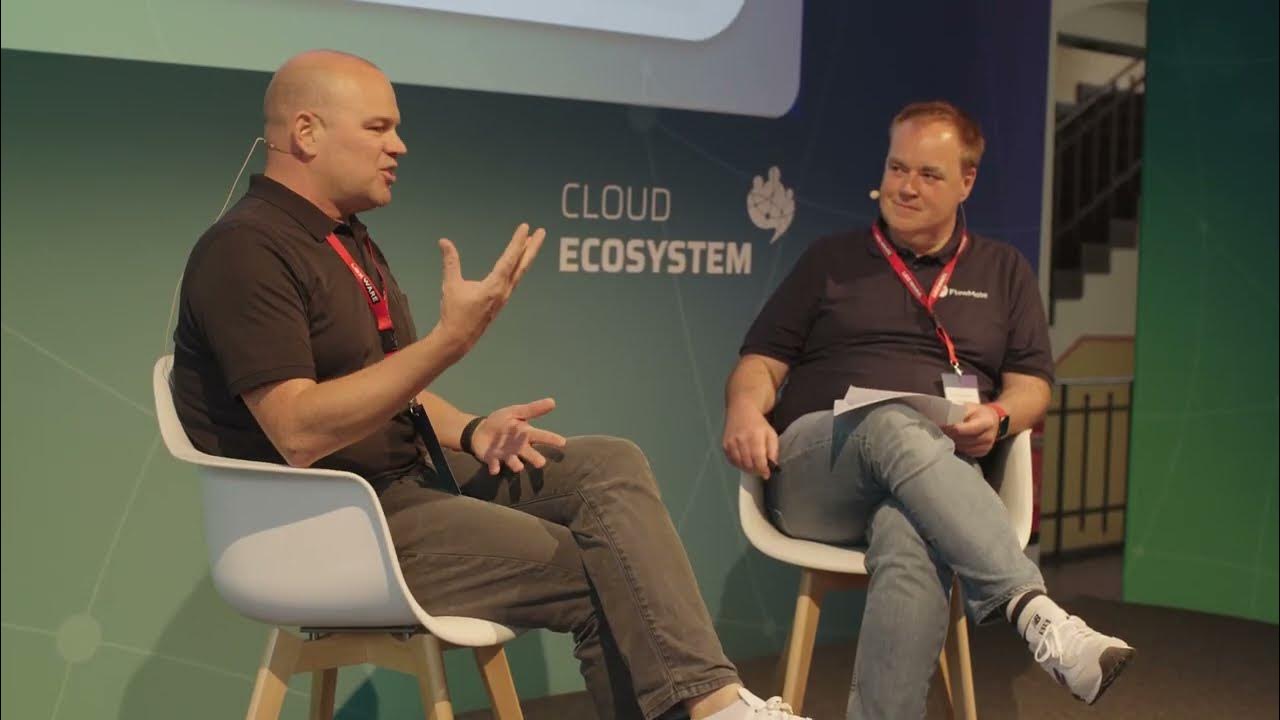The New Shop Floor Management
Summary
TLDRDer Text thematisiert die Bedeutung von Veränderung und Wettbewerb in Unternehmen. Es wird betont, dass Unternehmen, die sich anpassen und kontinuierlich verbessern, erfolgreich im Markt bestehen können. Die Notwendigkeit von Selbstmanagement und die Beteiligung der Mitarbeiter an Entscheidungsprozessen werden als Schlüssel zur Steigerung der Produktivität und Zufriedenheit hervorgehoben. Das Konzept der Werkstattbodenmanagement wird als Weg zur Steigerung der Effizienz und zur Schaffung einer zukunftssicheren Unternehmensstruktur dargestellt.
Takeaways
- 🌐 Die Welt ist voller Veränderungen und Unsicherheiten, was die Lebensdauer von Produkten und Dienstleistungen betrifft.
- ⏱ Technologien und Unternehmen erscheinen und verschwinden schneller als je zuvor, was die Anpassungsfähigkeit erfordert.
- 🔍 Die Fähigkeit, Veränderungen zu bewältigen, ist entscheidend für das Überleben und die Wettbewerbsfähigkeit von Unternehmen.
- 🚀 Die Intensivierung des Wettbewerbs führt zu einer besseren Produktvielfalt, kann aber auch negative Auswirkungen auf Unternehmen haben, die diesen Herausforderungen nicht gewachsen sind.
- 🏭 Die Produktionsstätte, speziell der Shopfloor, ist entscheidend für die Effizienz und den Erfolg eines Unternehmens.
- 🛠 Die Implementierung moderner Produktionstechnologien und die Förderung stetiger Verbesserungen sind essenziell für das Überleben in einem wettbewerbsintensiven Umfeld.
- 🤝 Das Selbstmanagement und die Verantwortung der Mitarbeiter für ihre täglichen Entscheidungen und Projekte fördert Zufriedenheit und Engagement.
- 🔄 Die Anpassung an Veränderungen ist notwendig, um wettbewerbsfähig zu bleiben, und erfordert oft eine radikale Veränderung der Unternehmenskultur.
- 💡 Die Beteiligung der Mitarbeiter an der Entscheidungsfindung und der Visionsgestaltung fördert das Gefühl der Eigenverantwortung und des Zusammengehörigkeitsgefühls.
- 🌟 Die Veränderung muss von innen heraus kommen und von der Organisation selbst generiert werden, um nachhaltigen Erfolg zu gewährleisten.
Q & A
Was ist das Hauptthema des Skripts?
-Das Hauptthema des Skripts ist die Bedeutung der Anpassung an Veränderungen und Wettbewerbsfähigkeit in der heutigen schnelllebigen und unsicheren Welt, mit besonderem Fokus auf der Verbesserung der Qualität und des Selbstmanagements im Betriebsalltag.
Welche Rolle spielt die Kundenzufriedenheit in dem Skript?
-Die Kundenzufriedenheit ist ein zentrales Ziel, das durch kontinuierliche Verbesserung und Anpassung an verändernde Kundenanforderungen erreicht werden soll.
Was war der Auslöser für die Qualitätsinitiative, die im Skript erwähnt wird?
-Die Qualitätsinitiative wurde ausgelöst, als Offiziere in einer Vorstandssitzung zehn Jahre zuvor die Qualität als mangelhaft erkannten und die Notwendigkeit zur Verbesserung hervorgehoben, um im globalen Wettbewerb bestehen zu können.
Was zeigt die Entwicklung der Produktentwicklungszeiten im Skript?
-Die Entwicklungszeiten für Produkte haben sich drastisch verkürzt, was die Notwendigkeit von Anpassung und schneller Reaktion auf Marktveränderungen verdeutlicht.
Wie wirkt sich mangelnde Wettbewerbsfähigkeit auf die Gemeinde aus, wie im Skript beschrieben?
-Eine mangelnde Wettbewerbsfähigkeit kann zu negativen sozialen Folgen führen, einschließlich leerstehender Gebäude, geschlossener Schulen und einer Verringerung des persönlichen Einkommens in der Gemeinde.
Was bedeutet Selbstmanagement im Kontext des Skripts?
-Selbstmanagement bedeutet, dass Mitarbeiter für ihre täglichen Entscheidungen und Projektziele verantwortlich sind, was zu einer größeren Zufriedenheit und einem Gefühl des Zusammenhalts im Team führt.
Welche Bedeutung hat der Produktionsbereich (Shop Floor) für das Unternehmen, wie im Skript dargestellt?
-Der Produktionsbereich ist der Kern des Unternehmens, wo die meisten Probleme und Herausforderungen zusammenkommen und wo Effizienzsteigerungen und Technologieeinsatz stattfinden müssen.
Was ist die alte Vision der Betriebsführung, die im Skript kritisiert wird?
-Die alte Vision der Betriebsführung sah die Arbeiter als Erweiterungen von Maschinen an, was eine Trennung zwischen denen, die denken, und denen, die mit ihren Händen arbeiten, zur Folge hatte.
Was ist die neue Vision der Betriebsführung, die im Skript vorgeschlagen wird?
-Die neue Vision der Betriebsführung ist das Selbstmanagementssystem, das die Beteiligung der Mitarbeiter an Entscheidungsprozessen fördert und sie als zentrale Akteure im Betrieb sieht.
Was sind die unmittelbaren Vorteile des Implementierens eines Betriebsmanagementprogramms, wie im Skript beschrieben?
-Die unmittelbaren Vorteile umfassen die Verringerung von Ausschuss und Nachbesserungskosten, höhere Produktivität, bessere Zuverlässigkeit und verbesserte Pünktlichkeit bei der Lieferung, sowie die Verringerung von Lagerbeständen und Kosten für Arbeitsunfälle.
Outlines

Esta sección está disponible solo para usuarios con suscripción. Por favor, mejora tu plan para acceder a esta parte.
Mejorar ahoraMindmap

Esta sección está disponible solo para usuarios con suscripción. Por favor, mejora tu plan para acceder a esta parte.
Mejorar ahoraKeywords

Esta sección está disponible solo para usuarios con suscripción. Por favor, mejora tu plan para acceder a esta parte.
Mejorar ahoraHighlights

Esta sección está disponible solo para usuarios con suscripción. Por favor, mejora tu plan para acceder a esta parte.
Mejorar ahoraTranscripts

Esta sección está disponible solo para usuarios con suscripción. Por favor, mejora tu plan para acceder a esta parte.
Mejorar ahoraVer Más Videos Relacionados

Christian Steiger von Lexware im Interview: Wie gewinnt man 250 k Kunden in Deutschland

6 UF Modul C Teil 1

Grundkurs Alte Geschichte 7.1

F. A. Hayek: Konjunkturtheorie, spontane Ordnungen und der Antagonismus zu Keynes (4.12)

Mit dem Internet, wie wir es kennen, ist es aus

Geschichte der Schweiz 4: Restauration 1814/1815-1830
5.0 / 5 (0 votes)
